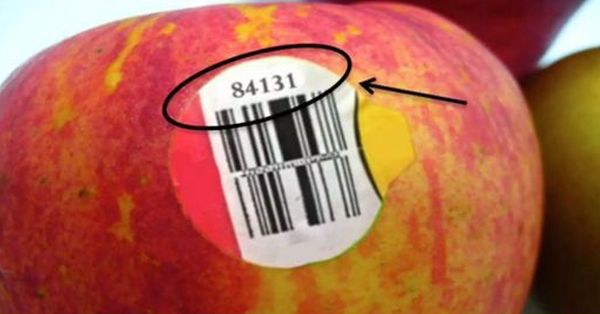Have you ever looked at the labels on fruit and wondered what those little numbers mean? Well, they’re not just random codes. In fact, they contain important information about how the fruit was grown and can help you make informed choices. These labels can be found on various fruits, vegetables, herbs, and nuts, but they are most commonly seen on fruits. Let’s uncover the meaning behind these fruit labels and how they can help you make better decisions.

Fruit labels can be divided into three categories: conventional, genetically modified, and organic.
Conventional: Conventional fruits have a four-digit code on their label. This means that they are grown using traditional farming practices, which often involve the use of pesticides and chemical fertilizers. While these practices may affect soil health, it’s important to note that the pesticide residue levels on fruits usually comply with safety standards.
Genetically Modified: If a fruit label has a five-digit code starting with the number 8, it means that the fruit is genetically modified. These fruits are engineered to resist pests and may involve the use of pesticides during cultivation.
Organic: Organic fruits have a five-digit code starting with the number 9. These fruits are grown without the use of synthetic pesticides or fertilizers. Choosing organic options can promote soil health and environmental sustainability.
When choosing fruits, there are several factors to consider:
Pesticides and Health: Conventionally grown fruits may contain traces of pesticides, but the levels usually comply with safety standards. However, if you have concerns about pesticide exposure or specific dietary preferences, you may opt for organic options to minimize potential risks.
Environmental Impact: The choice between conventional and organic farming practices also has environmental implications. Organic farming methods prioritize soil health and sustainability, aiming to reduce soil erosion, conserve water, and minimize chemical runoff. By supporting organic farming, you can contribute to more environmentally friendly agriculture.
Supporting Local Farmers: Buying fruits from local farmers through farmers’ markets or Community Supported Agriculture (CSA) programs benefits your local economy, reduces the distance your food travels, and ensures fresher produce. Even if local farmers are not certified organic, they may still employ sustainable farming practices. Engaging in conversations with them can provide valuable insights into their methods.
By considering these factors and understanding the meaning behind fruit labels, we can make food choices that align with our nutritional needs, environmental values, and support for local agriculture. So the next time you pick up a piece of fruit, take a moment to decode that little sticker. It might just reveal more about your food choices than you ever imagined.
If buying locally is not an option for you, remember to look for the organic option with the number 9 label.





